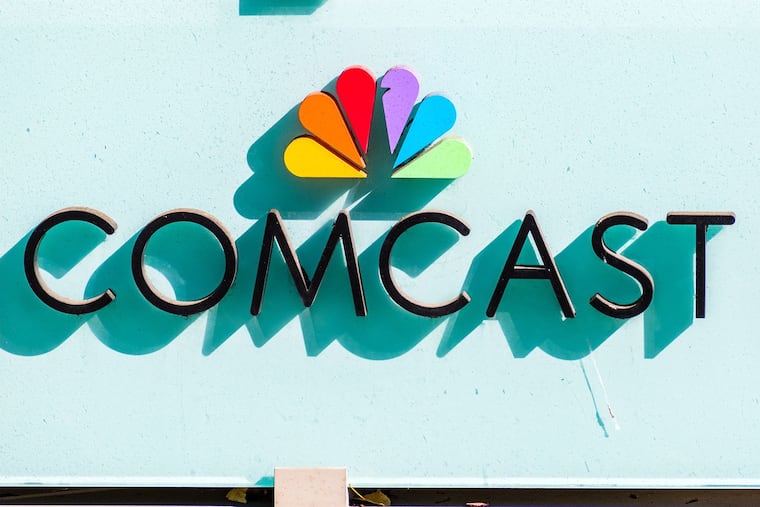Comcast’s third-quarter revenue falls as coronavirus harms theme parks and movie studios
The coronavirus battered Comcast Corp.'s theme parks and film studios, driving down revenue 4.8% in the third quarter even as the company signed up a record number of broadband customers.

The coronavirus battered Comcast Corp.'s theme parks and film studios, driving down revenue in the third quarter even as the company signed up a record number of broadband customers.
The Philadelphia cable giant said Thursday that revenue dropped 4.8% from $26.8 billion to $25.5 billion for the quarter ending Sept. 30. Net profit was $2 billion, or 44 cents per share, a 37.2% decline from the $3.2 billion last year.
Still, Comcast’s earnings beat Wall Street expectations with some analysts expecting earnings per share of 42 cents. The company’s shares closed up 2.57% to $43.06 in Thursday’s trading on Nasdaq.
Comcast’s theme parks were hit hardest by the pandemic. Universal Studios parks in Orlando and Osaka, Japan, are operating at limited capacity, leading to layoffs. Its theme park in Los Angeles has been kept closed by California Gov. Gavin Newsom, who on Tuesday refused to reopen theme parks. Comcast’s theme parks revenue plunged 80.9% to $311 million during the quarter.
“Where we continue to see the most pressure from COVID is in our theme parks, which were the single biggest drag in the quarter,” Comcast Chairman and CEO Brian Roberts said during a conference call with analysts.
Comcast’s broadband business is still booming. The cable division added 633,000 high-speed internet customers — a quarterly record — and saw its revenue rise 2.9% to $15 billion. Comcast also saw revenues increase in wireless, business services, and advertising.
As consumers continue to flee pay-TV in large numbers — 273,000 cut video plans during the quarter — the cable giant has embraced cheaper online streaming. Comcast’s fledgling Peacock streaming service has signed up 22 million customers since launching in April, and Comcast recently reached a deal to put Peacock on Roku’s streaming devices. The company also offers internet-only customers its own streaming device, called Flex, that lets customers aggregate their streaming subscriptions, like Netflix or Hulu.
“We remained intensely focused on our top three strategic priorities of expanding and leading with broadband, aggregation, and streaming, all of which are underpinned by strong content creation, distribution, and technology.” Roberts said.
Aside from theme parks, Comcast saw the pandemic harm its film studios with declining ticket sales and many movie theaters still closed. Film revenue fell by a quarter to nearly $1.3 billion. The dire box office has forced Universal to postpone some of its blockbusters, including Fast and Furious 9, which was pushed to May 2021.
Overall, NBCUniversal revenue was down 18.9% to $6.7 billion.
Analyst Craig Moffett, of the New York research firm MoffettNathanson, said strong subscriber growth in broadband and the pandemic’s drag on theme parks and movie studios was expected.
“But the sheer magnitude of the swings is shocking,” he wrote in a note to investors. “And the broadband result is nothing short of (we search for words here) astounding.”
Over in Europe, Comcast’s Sky — whose largest pay-TV markets are the United Kingdom, Germany, and Italy — saw revenue jump 5.2% to nearly $4.8 billion. But its operating costs and expenses jumped 17%, driven in part by a hike in sports programming costs as leagues resumed their seasons after the pandemic suspended them.